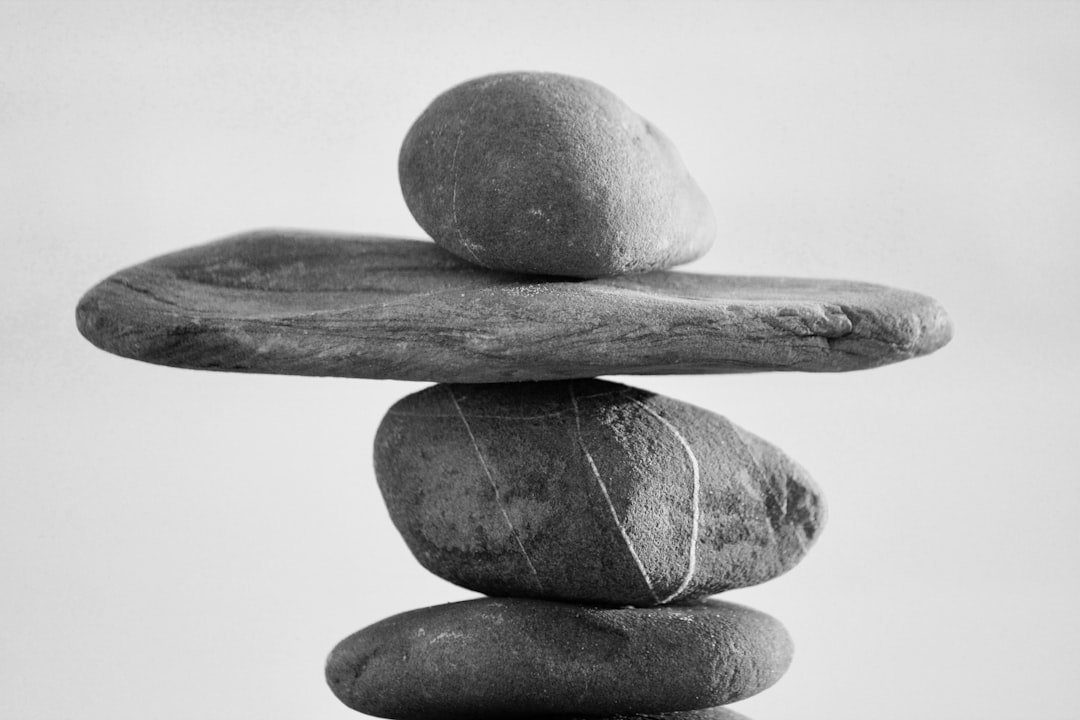I used to think you were either a success or a failure. There was no in-between.

This black-and-white thinking ruled my life for years. If I ate one unhealthy thing my diet was ruined for the day so I might as well binge. If I skipped one workout my entire fitness plan was a failure. This all-or-nothing mindset kept me stuck in a cycle of bad habits from overeating to laziness. It was exhausting.
Finding balance was the key to changing everything. It’s not about being perfect. It’s about being steady. It’s about giving yourself the grace to be human while still moving forward. Developing a balanced view helps you navigate life’s ups and downs without getting thrown completely off course.
Ditching the Extremes
When I was trying to lose weight I thought I had to be 100% perfect. One cookie meant I had failed. So what did I do? I’d eat the whole box. My thinking was broken. The real victory wasn’t avoiding the cookie forever. It was learning to have one cookie enjoy it and then get right back to my healthy habits with the next meal.
That’s what balance looks like. It’s not a tightrope walk. It’s a wide and steady path. You have room to move and even stumble without falling off the edge. If you feel stuck in extremes here are some ways to find that wider path.
20 Ways to Find a More Balanced View
Look for the “and” not the “but.” Two opposing things can be true at once. You can be sad about a loss and grateful for what you have. You can be frustrated with your progress and proud of how far you’ve come. This simple word swap changes everything.
Question your first reaction. Our initial emotional response is often extreme. Before you react take a deep breath. Ask yourself if there’s another way to see the situation.
Listen more than you speak. It’s hard to have a balanced view if you’re the only one talking. Listen to understand not just to reply.
Read from people you disagree with. Don’t just read to argue in your head. Try to genuinely understand their point of view. It strengthens your own beliefs or helps you refine them.
Admit you don’t know everything. Humility is a superpower. Saying “I don’t know” or “I could be wrong” opens you up to learning.
Talk to people with different lives. Chat with someone older younger or from a completely different background. Their experiences will give you a perspective you can’t get from a book.
Spend time in nature. A walk in the woods or sitting by a lake has a way of putting things into perspective. It reminds you that you’re part of something much bigger. Our problems can feel smaller under a vast sky.
Understand context is king. No event or statement happens in a vacuum. Before you judge look at the surrounding circumstances. What led to this?
Separate the person from the opinion. You can respect a person while completely disagreeing with their ideas. This is crucial for maintaining relationships in a divided world.
Pray for wisdom. My faith is my anchor. When I feel confused or pulled toward an extreme view I pray for clarity and wisdom. Seeking God’s perspective helps me find true balance beyond my own limited understanding.
Ditch the labels. We love to label ourselves and others: lazy smart unhealthy. These labels are boxes. People are more complex than that. Focus on actions not static labels.
Limit your news and social media. Constant exposure to outrage and extreme opinions is designed to make you anxious. Choose a couple of reliable sources check in briefly then get back to your real life.
Celebrate small progress. When I was losing 110 pounds I couldn’t focus on the final number. It was too big. Instead I celebrated losing the first five pounds. Then the next. Small wins build momentum and keep you from feeling like a failure.
Look for the good in people. It’s easy to spot flaws. Make an effort to find the good. Most people are trying their best even if it doesn’t look like it.
Be patient. With yourself and with others. Real change and deep understanding take time. You don’t have to have it all figured out today.
Look at the source. Where is this information coming from? Who benefits if you believe it? A little healthy skepticism can protect you from manipulation.
Step out of your own shoes. Try to imagine what someone else is feeling and experiencing. Empathy is the best antidote to judgment.
Embrace shades of gray. Life is rarely black and white. Most of the time it’s a messy beautiful mix of gray. That’s where real life happens.
Focus on principles not just rigid rules. Rules can be brittle. Principles are flexible. For example the principle of honoring your body is more helpful than a rigid rule of "never eat sugar."
Practice daily gratitude. Every day I write down a few things I’m thankful for. It shifts my focus from what’s wrong with the world to what’s right in my own life. It grounds me in reality and in God’s blessings.
Your First Step to Balance
You don’t have to do all of this at once. True to the spirit of balance just pick one. One small shift can start a ripple effect that changes how you see yourself others and the world around you.
It's a journey not a destination. It's about slowly replacing old patterns of extreme thinking with grace and understanding. It's about finding freedom in the middle ground.
So let me ask you: What’s one area in your life where you could challenge an all-or-nothing belief today?